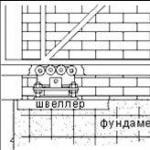One copy of the contract must be given to the employee.
The employment contract specifies the main working conditions: place of work, position, payment, term of the contract, etc. You can also fix the conditions in the contract probationary period, but it is important to remember that some categories of persons are exempted from passing such tests (Article 70 of the Labor Code of the Russian Federation).
If during the term of the employment contract, working conditions change (for example, working hours or salary), you need to issue supplementary agreement to the contract (Article 72 of the Labor Code of the Russian Federation) (the form of the employment contract can be viewed and downloaded).
Admission order and register
On the basis of an employment contract, an order for employment is issued.
It is necessary to familiarize the employee with the order within three days from the date of the actual start of work.
All orders for personnel, including orders for employment, are recorded in the register. There is no unified form of the journal - you can develop a journal yourself or purchase a ready-made one. The register of orders must be laced and numbered.
On the basis of an employment order, a work book, a personal card (No. T-2) are also filled out, and a personal account of the employee is opened in the accounting department (forms No. T-54 or No. T-54a).
Employment history
The work book is the main document that confirms the length of service (Article 66 of the Labor Code of the Russian Federation). Responsibility for the maintenance and storage of work books rests with the employer.
The employer is obliged to keep a work book for an employee who has not previously worked anywhere. He must also always have the forms of work books and inserts in them available. The issuance of forms is recorded in a special journal (Decree of the Government of the Russian Federation of April 16, 2003 No. 225).
Employment books and the procedure for their maintenance can be checked by the FIU and GIT.
When an employee is dismissed, a work book must be issued on the last day of work (Article 84.1 of the Labor Code of the Russian Federation). The employee must sign in the register of the movement of work books and inserts in them, which confirms the fact of issuance work book.
If the employer violates the terms for issuing a work book or the procedure for filling it out, he is threatened with material liability(Article 234 of the Labor Code of the Russian Federation).
Job description
Most companies prescribe the labor functions of employees in job descriptions. Although this document is not mandatory, it is safer to develop and apply job descriptions. Then the employee will not be able to present unreasonable claims to the employer.
In some cases, job descriptions must be applied mandatory (for example, for police officers).
Rostrud in its letter dated October 31, 2007 No. 4412-6 gave recommendations on the design job descriptions. Employees must be familiarized with the instructions against signature (Article 22 of the Labor Code of the Russian Federation).
Internal labor regulations
The procedure for hiring and dismissing employees, the rights and obligations of the parties, the mode of operation, rest time, incentives and penalties, and other issues that regulate labor relations should be enshrined in the internal labor regulations (Article 189 of the Labor Code of the Russian Federation).
Most often, the internal labor regulations (PWTR) are an annex to the collective agreement (Article 190 of the Labor Code of the Russian Federation). However, it is more expedient not to make the PRT an annex to the collective agreement, since it will be possible to change the PRT only through collective bargaining. It is better to draw up the internal labor regulations in a separate document.
The employer is obliged to familiarize the newly hired employee with these rules against signature (Article 22, Labor Code of the Russian Federation).
Regulation on personal data
When working with personnel, special attention should be paid to the storage and processing of personal data of employees.
The employer must approve the provision (regulation) on personal data, which will prescribe the procedure for storing and using personal data of employees (Article 88 of the Labor Code of the Russian Federation, Article 18.1 of the Federal Law of July 27, 2006 No. 152-FZ "On Personal Data").
The provision should indicate the composition of personal data, the procedure for their processing, transfer to third parties, the rights and obligations of employees in the processing of personal data, etc. All employees must be familiar with the provision and give their written consent to the processing of personal data (Article 22, , Labor Code of the Russian Federation).
Regulations on wages
The regulation on remuneration is not a mandatory document. It is drawn up if necessary, most often when the organization, in addition to salaries, provides for other payments (bonuses) or operates different systems wages.
The wage system can be established by a collective agreement (Article 135 of the Labor Code of the Russian Federation).
If the company has approved a regulation on remuneration, it usually prescribes remuneration systems, bonus conditions, overtime pay, the procedure for paying vacation pay, wage indexation conditions, etc.
The current regulation on remuneration with clearly defined rules and procedures will save the organization from unnecessary questions during inspections by regulatory authorities.
Pay slip and pay slips
The employer is obliged to notify employees of the accrued wages (Article 136 of the Labor Code of the Russian Federation).
Information about payments is contained in the payslip, the form of which is approved by the employer independently.
Payment of wages should be made on the basis of the payroll in the form No. T-49. Instead, you can use the payroll form No. T-51 and the payroll form No. T-53. If the salary is transferred to the cards, only the payroll is needed.
Service Expert Standard
Rogacheva E. A.
Labor Relations- relations based on an agreement between the employee and the employer on the personal performance by the employee of a labor function (work in a certain specialty, qualification or position) for a fee, the employee's subordination to the rules of internal labor regulations, while the employer ensures the working conditions provided for by labor legislation, collective agreement agreements, employment contracts. Labor relations arise between the employee and the employer on the basis of an employment contract.
The grounds for the emergence of labor relations are:
1) election (elections) to office;
2) election by competition to fill the relevant position;
3) appointment to a position or approval in a position;
5) actual admission to work with the knowledge or on behalf of the employer.
All relations between the employee and the employer are formalized by an employment contract, which specifies the working conditions, remuneration under normal conditions, as well as the conditions for remuneration for overtime work, in the evening and at night, on holidays and weekends, etc.
Employment contracts may be concluded:
1) for an indefinite period;
2) for a fixed period of not more than five years.
If the employment contract does not specify the term of its validity, then the contract is considered concluded for an indefinite period.
The employment contract is concluded in writing.
The employment contract comes into force from the day it is signed by the employee and the employer or from the day the employee is actually admitted to work.
An employee is hired on the basis of a personal application. The head of the organization makes a conciliatory note on the application indicating the place of work, position, start of work, work schedule, procedure and method of remuneration. Based on the application, the personnel department issues an order for employment. When drawing up orders, all the details provided for in the unified form must be filled in. Only in this case, the orders will be considered final and can be taken into account. The order for employment is signed by the head of the organization.
The main document on labor activity and seniority employee is a work book of the established form. Employment without a work book is not allowed. Upon initial employment, an employee is issued a work book.
An employee who has worked for 6 months in an organization may be granted another annual leave. The duration of paid leave is 28 calendar days, of which one part cannot be less than 14 calendar days in a row. For a number of categories of employment, the duration of leave may be increased in accordance with industry standards.
The grounds for termination of an employment contract are:
1) agreement of the parties;
2) expiration of the employment contract;
3) termination of the employment contract at the initiative of the employee;
4) termination of the employment contract at the initiative of the employer;
5) transfer of an employee at his request or with his consent to work with another employer or transfer to elective work (position) and other reasons.
In all cases, the day of dismissal of the employee is the last day of his work at the same place.
AT conducting
Occupational safety is a system for preserving the life and health of workers in the course of their work, including legal, socio-economic, organizational and technical, sanitary and hygienic, medical and preventive, rehabilitation and other measures.
All organizations, regardless of their form of ownership, must obtain a safety certificate - a document certifying the compliance of labor protection work carried out in the organization with the established state regulatory requirements for labor protection.
According to the Constitution of the Russian Federation, every citizen of Russia has the right to work in conditions that meet the requirements of safety and hygiene (Article 37), to health care and free medical care in state and municipal health care institutions (Article 41), to state compensation for harm caused by illegal actions (or inaction) of state authorities or their officials (Article 53), on a favorable environment, reliable information about its condition and on compensation for damage caused to his health or property by an environmental offense (Article 42). Concealment by officials of facts and circumstances that pose a threat to the life and health of people entails responsibility in accordance with the Constitution of the Russian Federation (Article 41, paragraph 3).
1. Main provisions of labor legislation
1.1. Legislation of the Russian Federation on labor and its scope
The orientation and main content of legislative acts on labor come from the relevant articles of the Constitution Russian Federation. So, in Art. 7 says that the Russian Federation is a social state whose policy is aimed at creating conditions that ensure a decent life and free development of a person. In the Russian Federation, the labor and health of people are protected, and a guaranteed amount of wages is established.
Art. 37 paragraph 3. Everyone has the right to work in conditions that meet safety and hygiene requirements, to remuneration for work without any discrimination and not lower than the minimum wage established by federal law, as well as the right to protection from unemployment.
The regulation of labor relations and other relations directly related to them in accordance with the Constitution of the Russian Federation, federal constitutional laws is carried out by labor legislation (including labor protection legislation) and other regulatory legal acts containing labor law norms:
the Labor Code and other federal laws;
Decrees of the President of the Russian Federation;
Decrees of the Government of the Russian Federation and regulatory legal acts federal executive authorities;
Constitutions (charters), laws and other regulatory legal acts of the subjects of the Russian Federation;
Acts of local governments and local regulations containing labor law.
Thus, in some cases Labor Code Russian Federation (Labor Code of the Russian Federation) must be considered in conjunction with other regulatory legal acts.
1.2. Basic labor rights of employees
In accordance with the Constitution of the Russian Federation, everyone has the right to work that he freely chooses or to which he freely agrees, the right to dispose of his abilities for work, choose a profession and occupation, and the right to protection from unemployment.
Forced labor is prohibited.
Each employee has the right (Article 21 of the Labor Code of the Russian Federation):
To working conditions that meet the requirements of safety and hygiene;
For compensation for harm caused by damage to health in connection with work;
to equal remuneration for equal work without any discrimination and not below the minimum amount established by law;
For rest, provided by the establishment of the maximum duration of working hours, reduced working hours for a number of professions and jobs, the provision of weekly days off, holidays, as well as paid annual holidays;
To join trade unions;
For compulsory social insurance and provision by age, in case of disability and in other cases established by law;
For judicial protection of their labor rights, etc.
1.3. Labor relations between the employer and the employee, the procedure for their registration and guarantees of compliance
Working conditions are included in labor contract and must comply with the requirements of the Federal Law "On the Fundamentals of Labor Protection in the Russian Federation" (Article 9) and the Labor Code of the Russian Federation, as well as other regulatory legal acts (collective agreements).
In the Russian Federation, an employment contract can be concluded with any employee. An unreasonable refusal to conclude an employment contract is prohibited (Article 64 of the Labor Code of the Russian Federation).
The employment contract specifies (Article 57 of the Labor Code of the Russian Federation):
Name of profession or position;
The rights and obligations of the employee;
Rights and obligations of the employer;
Characteristics of working conditions, compensation to employees for work in difficult, harmful and (or) dangerous conditions;
The mode of work and rest (if it is different for this employee from the general rules established in the organization);
Terms of remuneration (including the size of the tariff rate or official salary of the employee, additional payments, allowances and incentive payments);
Types and conditions of social insurance directly related to labor activity and etc.
The terms of the employment contract can be changed only by agreement of the parties and in writing.
Posted On 06/23/2018
Labor relations in Russia are regulated established norms Labor Code. The document in question, among other things, contains information on the order in which the organization of relations between the employee and the employer takes place on initial stage. The procedure for formalizing labor relations includes, first of all, the conclusion of an employment contract between the parties. The preparation and signing of this document is mandatory in all cases involving the actual admission of the employee to the performance of certain duties by him.
The formation of a working relationship between an employee and an employer begins with the conclusion of an employment contract between them. To do this, the employee, in accordance with the norms of labor legislation, must provide the following package of certain documents:
- Russian passport;
- military ID (if the applicant is liable for military service);
- certificate of pension insurance;
- work book;
- a document on the received specialized education, if it is necessary in connection with the specifics of the specialty.
After the employment contract is concluded, the employer, represented by the head, is obliged to issue an order for the admission of a specialist to the appropriate position, with which the employee must be familiarized, which is confirmed by his personal signature.
Due to the fact that the procedure for formalizing labor relations includes the preparation of a document that is the most significant for both parties, it is worth paying attention to the most important points in the course of its conclusion. First of all, an employment contract must be drawn up in two copies, which are equally legally significant.
Registration of labor relations: a phased process
In addition, the specialist has the right to request a copy of the signed order of employment. The employment contract comes into effect from the moment when both parties have sealed it with their signatures. In addition, the specialist is obliged to start performing his immediate duties from the moment specified by the concluded contract. If the day of commencement of work is not provided for by the contract, the employee begins to work from the day following the day of signing the contract.
Legislation allows for a situation where an employment contract is not drawn up in the prescribed manner. In this case, the employee starts work according to the order of the immediate supervisor. In this case, the employer is obliged to draw up and sign an employment contract no later than three days after the start of the specialist's work.
Types of employment contracts
A document regulating the relationship between an employer and a specialist can be concluded both for an indefinite period and for a specific period of time, which, in turn, cannot exceed five years. If a clear period does not appear in the contract, such a document is understood to be concluded for an indefinite period. Such an agreement may be terminated only in the manner established by law. Fixed term contract can be enclosed either in without fail, in accordance with Article 59 of the Labor Code of the Russian Federation, or on the basis of an agreement between the parties.
Home-How to create your business-HR work
print version
Registration of relations of hired labor is possible by concluding one of the contracts with the employee: labor or civil law.
Labor contract- an agreement between the employee and the employer, where the main obligation of the employee is to perform a certain labor function (to work), and the main obligation of the employer is to pay the employee wages, as well as to ensure normal working conditions. The contract is concluded in accordance with the requirements of the Labor Code of the Russian Federation.
hallmark of the employment contract is the subordination of the parties: the employee is subordinate to the employer and fulfills his orders.
However, the employer is obliged to fulfill many obligations towards the employee, from creating favorable working conditions to providing annual paid leave, paying benefits, etc.
Civil contract- agreement of the parties on the performance of a particular work for a fee.
Civil law contracts include all contracts concluded in accordance with the Civil Code of the Russian Federation.
When using hired labor, most often contracts are concluded and paid provision services, less often - an agency agreement. The parties to a civil law contract are equal.
It is necessary to correctly assess the organization of the worker's work, taking into account the main differences between the labor and civil law contracts.
Convenience for the employer of the employment contract:
. An employee under an employment contract is obliged to obey labor discipline, i.e. He must certain time be at his workplace and perform the work assigned to him by the head.
The procedure for registration of labor relations
For violation labor discipline the employee will be responsible for repeated violations he could be fired altogether.
In fact, the violation of labor discipline can even be understood as the disclosure of trade secrets.
Convenience of a civil law contract:
. Does not burden the employer with a number of obligations stipulated by labor legislation.
. Cancellation is possible unilaterally.
Registration of relations with an employee hired under a civil law contract
Algorithm of actions when concluding a civil law contract:
1) Drawing up and signing the contract.
2) Only for individual entrepreneurs if the hired employee is the first (before that, there were no employees at all): Registration as an insurer in the offices of the Pension Fund of Russia and the Social Insurance Fund.
3) Payment under the contract (carried out depending on the terms of the contract: prepayment, in installments, after the completion of work, etc.).
4) Calculation, withholding and transfer of personal income tax (PIT) to the budget. Personal income tax is withheld from the amount of remuneration. The transfer of personal income tax is carried out on the day of payment of remuneration at a rate of 13%.
5) Accrual and payment of insurance premiums to the Pension Fund of Russia (until the 15th day of each month).
6) Calculation and payment of contributions to the Social Insurance Fund and the Federal and Territorial Compulsory Medical Insurance Funds.
Available by the 15th of every month.
7) Signing an act of work performed (services rendered).
8) Submission of a quarterly report to the Social Insurance Fund (until the 15th day of the month following last month reporting quarter).
9) Submission of a personal income tax return (until April 30 of the year following the reporting year).
10) Submission to the Pension Fund of Russia of documents of individual (personalized) accounting.
Formation of relations with an employee hired by
employment contract
Algorithm of actions for registration (from hiring to dismissal):
1) Familiarization of a potential employee with the internal labor regulations and other local regulations (labor protection rules, orders that have special meaning).
2) Conclusion of an employment contract.
3) Issuance of an order for employment and familiarization of the employee with it against signature.
4) Making an entry in the employee's work book.
5) Filling in the employee's personal card (T-2 form).
6) Only for individual entrepreneurs if the hired employee is the first (before that, there were no employees at all): Registration as an insurer in the offices of the Pension Fund of Russia and the Social Insurance Fund.
7) Notification of military registration authorities about hiring an employee (for persons liable for military service) within 14 days from the date of employment of the employee.
8) Accrual and payment of wages at least 2 times a month.
9) Calculation, withholding and transfer of personal income tax (PIT) to the budget. Personal income tax is withheld from the amount of remuneration. The transfer of personal income tax is carried out on the day of payment of remuneration
at a rate of 13%.
10) Calculation and payment of insurance premiums to the Pension Fund of Russia (until the 15th day of each month).
11) Calculation and payment of contributions to the Social Insurance Fund and the Federal and Territorial Funds of Compulsory Medical
insurance (until the 15th day of each month).
12) Issuing an order to dismiss an employee and familiarizing the employee with it against signature.
13) Making an entry in the employee's work book, familiarizing the employee with the entry against signature.
14) Calculation and payment of wages for hours worked and compensation for unused vacation(final calculation).
15) Handing the employee a work book against signature and, at the request of the employee, issuing copies of documents related to the dismissal.
16) Notification of the military registration authorities about the dismissal of an employee (for persons liable for military service) within 14 days from the date of dismissal.
17) Submission of a personal income tax return (until April 30 of the year following the reporting year).
18) Submission of reports to the Pension Fund of Russia of documents of individual (personalized) accounting.
Back to list
Conclusion of an employment contract
The employment contract is concluded in writing, drawn up in two copies, each of which is signed by the parties. One copy of the employment contract is transferred to the employee, the other is kept by the employer.
An employment contract that is not properly executed is considered concluded if the employee has started work with the permission or on behalf of the employer or his representative. When the employee is actually admitted to work, the employer is obliged to draw up an employment contract with him in writing no later than three days from the day the employee was actually admitted to work.
When concluding employment contracts with separate categories of employees, laws and other regulatory legal acts may provide for the need to coordinate the possibility of concluding labor contracts or their terms with the relevant persons or bodies that are not employers under these contracts, or to draw up labor contracts in more copies.
It should be noted that employment is issued by order of the employer. The order is issued on the basis of a concluded employment contract. The employee must be familiarized with the order (on receipt) within three days from the date of signing the employment contract. At the request of a new employee, he is given a certified copy of the order. Lawyers for labor disputes It is recommended to take copies of all documents that the employee signs. In addition, orders and contracts are recommended to be signed only after careful reading or after consultation with a specialist who knows all the "pitfalls".
When hiring, the employer is obliged to familiarize the employee with the internal labor regulations in force in the organization, other local regulations related to the employee's labor function, and the collective agreement.
The term of the employment contract.
In accordance with labor legislation (Article 58 of the Labor Code of the Russian Federation), employment contracts can be concluded:
v for an indefinite period;
v for a fixed period, but not more than 5 years;
v for the period established by the Labor Code of the Russian Federation and other federal laws for certain categories of employees (for example, for seasonal workers- up to 6 months).
If the employment contract and the employment order do not specify the period for which the employee is hired, he is considered to be hired for an indefinite period, that is, for permanent job. The peculiarity of such an agreement is that it continues for an unlimited time until the employee or employer terminates it in the manner prescribed by law.
Contracts concluded for a fixed period or for the duration of certain work are called fixed-term employment contracts. Their peculiarity lies in the fact that they can be concluded for any period precisely defined and agreed upon by the parties, but not more than 5 years. A fixed-term employment contract is terminated upon expiration of its validity period.
All cases of concluding a fixed-term employment contract are divided by the legislator into two groups: when the conclusion of a fixed-term employment contract is mandatory (part 1 of article 59 of the Labor Code of the Russian Federation) and when the parties have the right to conclude such an agreement by agreement (part 2 of article 59 of the Labor Code of the Russian Federation).
Conclusion for 1 chapter
Labor relations are not always formalized by an employment contract, however, if there is an employment contract, the parties (both the employee and the employer) are more protected from a legal point of view.
Registration of labor relations
The presence of an employment contract also reduces the likelihood of ambiguity and uncertainty in the relationship between the parties.
When concluding an employment contract, remember that this is an agreement between two parties - the employer and the employee. Two parties are interested in its conclusion, but, of course, the employee is to a greater extent, so take it seriously: remind you of the need to sign it, read it verbatim, go for a consultation with a lawyer.
Go to page: 1 2
Personnel issues are regulated large quantity legal acts: codes (Civil, Labor, Tax, Code of Administrative Offenses), special laws, resolutions and orders of the Government and ministries, many instructions and instructions from other government bodies, etc. In the variety of these documents, it can be difficult to understand how an employment relationship can be legally formalized in order to protect the interests of both the employer and the employee. In this article, we will give general idea about what options are possible for the relationship of the person providing the work with the one who performs it.
How can you establish a relationship with an employee?
An employment relationship is only an employer-employee relationship that have the features specified in article 15 of the Labor Code of the Russian Federation:
- job performance in accordance with staffing, profession, specialty, indicating qualifications;
- the specific type of work assigned to the employee (labor function);
- subordination of the employee to the rules of internal labor regulations;
- provision by the employer of working conditions provided for by labor legislation and other regulatory legal acts containing labor law norms.
But in addition to labor relations based on, interaction with an employee can also be formalized within the framework of d, when the employer and employee act as a customer and contractor. Such relations are not subject to labor legislation and relieve the customer of a significant share of responsibility for the working conditions of the contractor. At the same time, Article 15 of the Labor Code of the Russian Federation emphasizes that the conclusion of civil law contracts that actually regulate labor relations between an employee and an employer is not allowed.
The most frequent claims from the regulatory authorities are just an attempt to expose real labor relations under the guise of civil law. What benefits the employer in this case? He not only has the opportunity not to pay insurance premiums for injuries and occupational diseases for an employee in the FSS, but also does not have to provide vacation, sick leave, maternity payments and dismissal benefits. But if the employer wins here, then the employee loses, therefore, from January 1, 2014, he has the right to demand that civil law relations be recognized as labor relations (Article 19.1. Labor Code of the Russian Federation), if there are real grounds for that.
We propose to consider in more detail how the interaction between the employer and the employee is built within the framework of labor relations proper and within the framework of civil law, among which there is also the option of agency work (staff rental).
Employment contract with an employee
Under an employment contract, the employer undertakes to provide the employee with work for a specific job function, to ensure working conditions, in a timely manner and within full size pay, and the employee undertakes to personally fulfill the labor function and comply with the internal labor regulations of this employer (Article 56 of the Labor Code of the Russian Federation).
The employment contract maximally protects the rights of the employee and, at the same time, imposes on the employer the maximum responsibility of all options formalization of labor relations. We considered how to conclude an employment contract and what conditions should be provided for in it, because when concluding such an agreement, many nuances must be taken into account.
What else, besides concluding an employment contract, should an employer do when hiring and further interacting with an employee? The rights and obligations of the employee and the employer are prescribed in articles 21 and 22 of the Labor Code. Let's briefly go over the points that an employer must provide to his employee:
- familiarize with local regulations, such as internal labor regulations, regulation on remuneration, regulation on the protection of personal data;
- ensure safety and working conditions, as well as equipment, tools, technical documentation and other means necessary for the performance of labor duties;
- pay an employee wages in full, while payments must be made at least twice a month;
- pay monthly insurance premiums for an employee to the Pension Fund and the Social Insurance Fund at their own expense;
- provide for the everyday needs of employees related to the performance of their labor duties;
- pay for non-working holidays and annual leave
- compensate for the harm caused to employees in connection with the performance of their labor duties;
- pay maternity leave and child care allowance up to one and a half years;
- pay for sick days.
But outstaffing as the provision of personnel, in which employees are directly subordinate and at the disposal of the customer without concluding an employment contract with him, is an illegal way of formalizing labor relations.
In May 2014, Article 56.1 was added to the Labor Code of the Russian Federation, which imposes a ban on agency work carried out in the interests, under the management and control of an individual or legal entity that is not an employer this employee. At the same time, Chapter 53.1 was added to the Labor Code, which regulates the specifics of the work of employees temporarily sent by the employer to other persons under a labor contract for employees.
Private employment agencies will be able to send their employees to work with others if the employees are sent:
- to to an individual who is not an individual entrepreneur, for the purpose of personal service, assistance in housekeeping;
- to legal entity or an individual entrepreneur for the temporary performance of duties of absent employees who retain their place of work;
- to a legal entity or individual entrepreneur for work related to a deliberately temporary (up to 9 months) expansion of production or the volume of services provided.
The right to choose the option of registration of labor relations
We have considered all options for the possible registration of labor relations:
- labor contract;
- civil law contract with an employee - an individual;
- civil law contract with an employee who is an individual entrepreneur;
- remote work on the basis of an employment contract or a GPC agreement;
- service outsourcing;
- temporary assignment of employees by the employer to other persons in cases stipulated by law (such an opportunity will appear from January 1, 2016).
Issues related to the right of an employee to choose between the conclusion of an employment contract or a GPC agreement have more than once become the subject of disputes: tax, with the participation off-budget funds, State Inspectorate labor and the judiciary. Who has the right to choose an employment relationship that satisfies the interests of both the employee and the employer? It seems to us that these are, first of all, the parties of labor relations themselves.
In fact, where is the line beyond which the good wishes of the supervisory authorities to protect the interests of the employee violate his right to freely choose the option of formalizing the employment relationship? After all, often GPC agreement, which the inspectors unreasonably consider illegal, just meets the interests of the employee himself. Maybe it is easier and more profitable for him to work as a performer than to be a full-time employee?
The freedom of the right of a citizen to choose a contractual-legal form of interaction with a person providing work was indicated by the Constitutional Court in the Ruling of May 19, 2009 N 597-О-О: “Thus, contractual-legal forms mediating the performance of work (rendering of services) payable (paid activity), under a paid contract, can be both an employment contract and civil law contracts(contracts, assignments, paid services, etc.), which are concluded on the basis of free and voluntary expression of the will of interested subjects - parties to the future contract.
It would be great if government bodies, designed to protect the labor interests of a citizen, would take into account his personal opinion and leave the right to choose for him, without unreasonably, in some cases, accusing the employer of trying to violate labor laws.


















